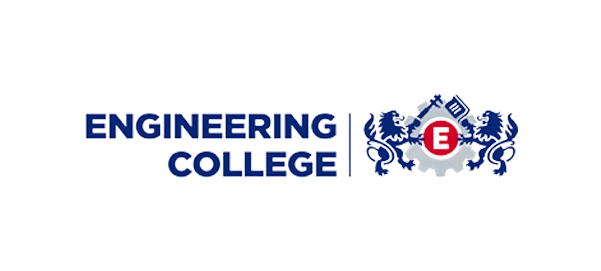Corporate Social Responsibility
The purpose of the Corporate Social Responsibility policy is to clarify what we mean by corporate responsibility and how we propose to work towards achieving it.
It provides a reference point to guide members of the Company on the values which drive the conduct of our business and relationships with the markets in which we operate. These simple, summary statements represent the first stage in developing fuller policies on those topics, which, in our opinion, collectively constitute corporate responsibility. This policy applies throughout DSSR and should govern our approach to all our activities.
Underlying Philosophy
DSSR believes that a responsible approach to developing relationships between organisations and the communities they serve, global or local, is a vital part of delivering business success.
How we interact with the markets in which we operate determines our place within them. This statement of corporate responsibility represents the first step in defining DSSR’s view and will be developed over time.
The Management Group recognises the need to reflect these commitments as follows:
Community Support & Charitable Giving
We strive to be a good corporate citizen, recognising our responsibility to work with our people and the wider community to improve the quality of life of the less fortunate. DSSR has a history of supporting good causes and supporting fundraising activities.
Charity & Community Benefits
DSSR’s policy on Community Support and Charity covers the following areas:
- DSSR is proud to have a partnership with the Centre for Sustainable Healthcare, in support of their NHS Forest project. DSSR has committed to an annual donation of 500 trees for the NHS Forest. The NHS Forest project, with its focus on wellbeing and biophilia, is perfectly in keeping with our human-centric design philosophy which considers an array of related factors such as thermal comfort, artificial and daylight levels, air quality, and ventilation performance.
- Supporting the Prince and Princess of Wales charity fundraising events including The Summer Ball and Sporting Lunch and sponsorship of participants in the London Marathon;
- Supporting fundraising events in the office including Stand Up to Cancer, Macmillan Cancer Support, The Royal Hospital for Sick Children and Comic Relief, The Children’s Hospice Association Scotland, Refuweegie refugee support, the Erskine Hospital (caring for ex-servicemen and women) and many more;
- DSSR support other charities through fundraising events including the Prince & Princess of Wales Burns Supper, Children’s Aid Question of Sport Dinner, Maggie’s Cancer Care Dinner, Alzheimer’s Scotland, and Cystic Fibrosis.
- Supporting our staff with individual charity activities including the London Marathon, the UK Breast Cancer ‘Walk the Walk’, and sponsored cycles for Diabetes UK.
Environment & Sustainability
We recognise that our business activities have direct and indirect impacts on the markets in which we operate. The built environment accounts for around 40% of the UK’s energy-related carbon dioxide (CO2) emissions, whilst also having a significant impact on our natural habitats. DSSR is committed to working with our clients to commission, design, and maintain buildings as indivisible components of a larger, constantly regenerating, and self-sustaining system, in balance with the natural world.
We endeavour to manage our impact in a responsible manner, believing that sound and demonstrable performance in relation to corporate responsibility policies and practices is a fundamental part of business success.
We are developing our views about issues affecting the environment and sustainable development and are prepared to put time and resources into projects that seek to improve the industry’s application of this emerging science.
DSSR’s policy on the Environment covers the following areas:
- Development and implementation of our internal environmental policy, covering such areas as energy use, recycling etc.
- Sustainable development providing advice to organisations on sustainability issues.
DSSR is dedicated to maintaining the ethos of reducing our carbon emissions, both direct and non-direct, as a long-term business goal. To demonstrate the Company’s commitment towards the environment, DSSR took part in CIBSE 100 hours of carbon clean up and focussed on 3 main areas:
- Energy: through the completion of workstation checks to ensure items of equipment were ‘switched off’, regular meter readings were taken to monitor energy usage, investment in energy-efficient hand dryers etc;
- Waste: through the introduction of a formal recycling scheme to include paper, cardboard, plastics, cans, printer cartridges etc.
- Transport: by incentivising staff to travel to work using public transport, through publicising public transport routes and organising ‘leave your car at home’ days.
The Carbon Clean Up exercise is ongoing and regular meetings take place to review progress.
Wellbeing & Development of our People
We are guided by our aim to be the employer of choice in the market in which we operate, committed to fostering a culture of well-being and development throughout the practice. Our policies and procedures are regularly updated to embrace new initiatives within the workplace.
Health & Safety
We are committed to providing a working environment that is both safe and fit for the intended purpose and ensures that health and safety issues are a priority for all business operations. Health and safety representatives have been appointed in each of our offices and they are responsible for ensuring compliance and developing a healthy and safe working environment.
Ethics & Values
We are committed to ensuring that our business is conducted in all respects according to rigorous ethical, professional and legal standards. The Company’s Group HR Manager is responsible for managing the implementation of the Company’s ethical policies.
Responsibilities
Hugh Currie, Senior Director with the primary responsibility to lead and implement the Corporate Responsibility policy.
Fiona Eadie, the Group HR Manager, has been appointed to manage the implementation of the Company’s Corporate Social Responsibility policy in conjunction with a designated representative from each of the DSSR offices.
All members of the Company are invited to provide feedback on the nature and operation of the Corporate Responsibility Statement.
Equal Opportunities
The Company is committed to the policy of equal treatment of all employees and applicants. The Company’s aim is to recruit, train, promote and reward based on merit and irrespective of gender, disability, sexual orientation, marriage or civil Directorship, gender reassignment, part-time status, age, religion or belief, race, colour, ethnic origin, nationality or national origin or trade union membership, political views or affiliations.
The Company is therefore committed to providing equality of opportunity for all employees by:
- Preventing any form of direct or indirect discrimination, or victimisation or bullying
- Promoting a good and harmonious working environment where all individuals are treated with respect and dignity and in which no form of intimidation or harassment from colleagues, customers or clients will be tolerated.
- Fulfilling all legal obligations under relevant national and European Union legislation and associated Codes of Practice where they apply.
DSSR will ensure that all employees are aware of the importance that the Company attaches to its Equal Opportunities Policy, and will ensure that they do not, by their actions, behaviour or attitudes, directly or indirectly or unintentionally discriminate against any job applicants, employees, customers or clients. Any acts of discrimination will be treated as disciplinary offences; these will include for example, discrimination in selecting, promoting or training, refusing to work with or for a person because of any of the reasons stated in our policy and harassment of any employee, customer or client.
Overall responsibility for the application of the policy rests with the Senior Director and the Group HR Director. However, all employees of DSSR have a personal responsibility under the policy, in particular Team Leaders.
All HR publications, such as contracts of employment, the Staff Handbook, and the Training and Development Programme will be kept under review to ensure that they do not breach this policy.
Direct Discrimination
Unlawful direct discrimination occurs when a person is treated less favourably than another because of a protected characteristic of gender, gender reassignment, race, disability, sexual orientation, marriage or civil Directorship, part-time status, age, religion or belief, political views or affiliations. Direct discrimination, for example, can occur when a person is refused a job, training or promotion in any of these circumstances.
Indirect Discrimination
Unlawful indirect discrimination is when a provision, criterion or practice is applied to all people but which, in practice, is such that fewer people in certain groups can comply and it cannot be shown to be a proportionate means of achieving a legitimate aim. Some practices may look fair but have an unintended discriminatory effect. For example, if the Company made a GCSE English qualification a requirement as selection criteria. This would have a disparately adverse impact on people educated overseas and may not be justified if all is required for the job is to demonstrate a level of literacy or the ability to communicate with others. The necessary level of literacy can be tested or checked in other ways that are more relevant to the job.
Implementation of Policy
DSSR will ensure that the principles of equality of opportunity apply to all aspects of employment by ensuring that their recruitment and selection procedures are fair and that key staff who are involved in the recruitment process are fully trained in equal opportunity legislation.
The Company’s recruitment process will also ensure that job vacancies, job descriptions, person specifications, advertisements and application forms are compliant with equal opportunities legislation and avoid any suggestion of discrimination. Selection criteria and procedures will also be regularly reviewed in the light of monitoring records to ensure that individuals are selected, promoted and in all other ways treated based on their relevant merits and abilities.
Employees with responsibility for recruitment will not stipulate qualifications for a job which might be disadvantageous to a person who is protected under equal opportunities legislation unless the qualifications are lawfully justifiable on objective grounds.
If jobs are advertised, the selection of outlets for advertisements will not restrict the number of suitable applicants from a group protected by equal opportunities legislation becoming aware of the vacancy. The advertisements will be aimed at as wide a group of suitably qualified and experienced people as possible.
Applicants who are interviewed for any position within the Company will be given as much clear and accurate information about the position as is necessary to enable them to assess their own suitability for the position. All interviews for any position will be thorough, conducted on an objective basis and will deal only with the applicant’s suitability for the job and ability to fulfil job requirements. Interview Guidance Notes are provided to employees with responsibility for recruitment to assist them in the recruitment exercise.
Those with responsibility for recruitment decisions, such as shortlisting and selection will, so far as is reasonably practicable, keep a written record of the reasons for their decisions in respect of each job applicant. Written records will be kept concerning candidates who have been interviewed but rejected and records will be retained for 12 months.
Wherever reasonable and practicable, the Company will make arrangements and adjustments to assist applicants for employment who have a disability and to retain employees with a disability within its workforce.
No employee will be offered less favourable terms and conditions of employment on any grounds covered by equal opportunities legislation. On joining the Company, new employees are asked to complete an Equal Opportunities Monitoring Form to enable DSSR to regularly review and monitor their Equal Opportunities Policies.
DSSR also recognise that some employees will have caring responsibilities and particular emphasis is given to the needs of parents through benefits, leave arrangements and provision for flexible working. Details of these policies and procedures are outlined in the Company’s Staff Handbook.
The Company’s Training and Development Policy takes full account of equal opportunity objectives and all employees are encouraged to discuss their career prospects and training needs with their Line Manager regularly and at the annual performance development review (PDR). All employees will be given equal opportunity and are encouraged to progress within the organisation.
Equal opportunities practice is constantly developing as social attitudes and legislation change. The Company will keep its policies under review and will implement changes where these could improve equality of opportunity.







